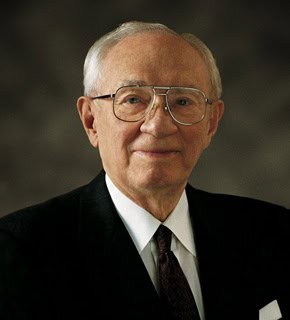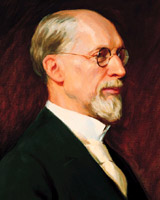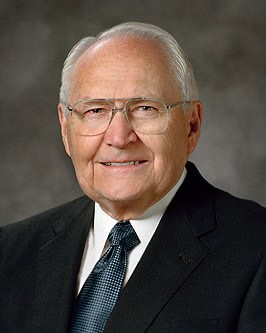Pioneers
SEARCH BY TITLE
 The Perpetual Education Fund
The Perpetual Education Fund
I begin by taking you back 150 years and more. In 1849 our forebears faced a serious problem. Our people had then been in the Salt Lake Valley for two years. Missionaries in the British Isles and Europe continued to gather converts. They came into the Church by the hundreds. When they were baptized, they desired to gather to Zion. Their strength and their skills were needed here, and their wish to come was very strong. But many of them were distressingly poor, and they had no money with which to buy passage. How were they to get here? Under the inspiration of the Lord, a plan was devised. What was known as the Perpetual Emigration Fund was established. Under this plan, funded by the Church, notwithstanding its serious poverty at that time, money was loaned to those members who had little or nothing. Loans were made with the understanding that when the converts arrived here, they would find employment, and as they were able to do so, they would pay off the loan. The money repaid would then be loaned to others to make it possible for them to emigrate. It was a revolving resource. It was truly a Perpetual Emigration Fund. With the help of this fund, it is estimated that some 30,000 converts to the Church were enabled to gather to Zion. They became a great strength to the work here. Some of them came with needed skills, such as stone masonry, and others developed skills. They were able to perform a tremendous service in constructing buildings, including the Salt Lake Temple and Tabernacle, and doing other work which required expertise. They came here by wagons and by handcarts. Notwithstanding the terrible handcart tragedy of 1856, when approximately 200 of them died from cold and sickness on the plains of Wyoming, they traveled safely and became an important part of the family of the Church in these mountain valleys. For instance, James Moyle was a stonecutter in Plymouth, England, when he was baptized at the age of 17. Of that occasion he wrote: “I then covenanted with the Lord that I would serve Him through good and evil report. It was the turning point in my life, as it kept me from evil company”. Notwithstanding his skill as a mason, he had little money. He borrowed from the Perpetual Emigration Fund and left England in 1854, sailed to America, crossed the plains, and almost immediately secured employment as a stonemason on the Lion House at $3 a day. He saved his money, and when he had $70, the amount of his indebtedness, he promptly repaid the Emigration Fund. He said, “I then considered that I was a free man”. When the Perpetual Emigration Fund was no longer needed, it was dissolved. I believe that many within the sound of my voice are descendants of those who were blessed by reason of this fund. You are today prosperous and secure because of what was done for your forebears.
 Sharing What We Believe
Sharing What We Believe
As I sit here looking at the faces of the men and women that I know here, and I can see people here from all over it came into my mind to ask the question: How many of you have filled a two-year or longer mission during your lifetime? Raise your hands. Thank you very much. This is a missionary Church. Sometimes people might think, from the way we refer to finance, that we are a bank, but we are not. Think of the buildings that are on this block, every one of them built many years ago. This tabernacle and the temple were built in the very poverty of our people when they were trying to make homes here in the valleys of these mountains. But the Lord said, “Seek ye first,”-not last-”. . . seek ye first the kingdom of God, and his righteousness, and all these things shall be added unto you.” When I travel, as I have, approximately a million miles in the world, in many nations and places in the world, and come back here, I do not know of any place where people have more comforts and blessings than we do right here in this place that 103 years ago was a desert land, with only one tree growing in this valley. My grandfather came with the first company of pioneers. There were 143 men, three women, and two children. After he had been here for five or six years, one of his non Mormon friends asked him, “President Smith, why did you leave Nauvoo and all that fine country back there in New York and Missouri and come out to this God-forsaken land?” The reply of my grandfather was, “Why, we came here willingly, because we had to.” In other words, the people, about twenty thousand of them, when they were expelled from Illinois, had their choice. They could have stayed there and lived with so-called Christians (I want to emphasize that), or they could leave and come out here and live with the Indians. That was their choice. They preferred the Indians. Now that was not because our people did not believe in Christianity. I know of no people in the world who believe as firmly in the divine mission of Jesus Christ as do the membership of the Church of Jesus Christ of Latter-day Saints.
 The Value of a Good Name
The Value of a Good Name
In 1997, as we celebrate the 150th anniversary of those who made the great trek across the plains to find freedom to worship according to their beliefs, it seems appropriate that we take time to remember those who did so much for us to bring the gospel into our families. First, each of us has these special accounts in our family histories of the sacrifices that were made for us to be blessed with a knowledge of the gospel. In some families, you may be the first member to join. You become its pioneer family. Therefore you have the obligation to record in your history who brought the converting power of the gospel to you. . . We cannot isolate ourselves from those around us. Our good name can be a special valued asset worth more than the riches of the world. In the Lord’s grand design for his children, he placed families as a centerpiece of his organizational structure. The scriptures always have their beginning in a family setting. In the Old Testament we have the story of Adam and Eve. The New Testament begins with the genealogy of our Savior. The Book of Mormon’s first lines are “I, Nephi, having been born of goodly parents.” Near the beginning of the Doctrine and Covenants is an excerpt from Moroni’s visit to Joseph Smith reminding us of the visitation of Elijah the prophet. In the Pearl of Great Price, again, is told the story of our first earthly parents. Your good name connects you with your past family history. Your righteous living, your example, your teachings, and your worthwhile service will bless numerous people with your vision. It is almost impossible to comprehend the number. May the Lord bless you with a greater understanding of his great plan of happiness and your special role in it. I add my witness to the many who have stood in this place over many years that families are important. Your name is special. It is recorded in the histories of our Father in Heaven, and how you value that, how you treat it, will literally affect generations to come. God bless you with the vision that is yours of who you are and the great privilege that is yours to belong to the Church of Jesus Christ.
